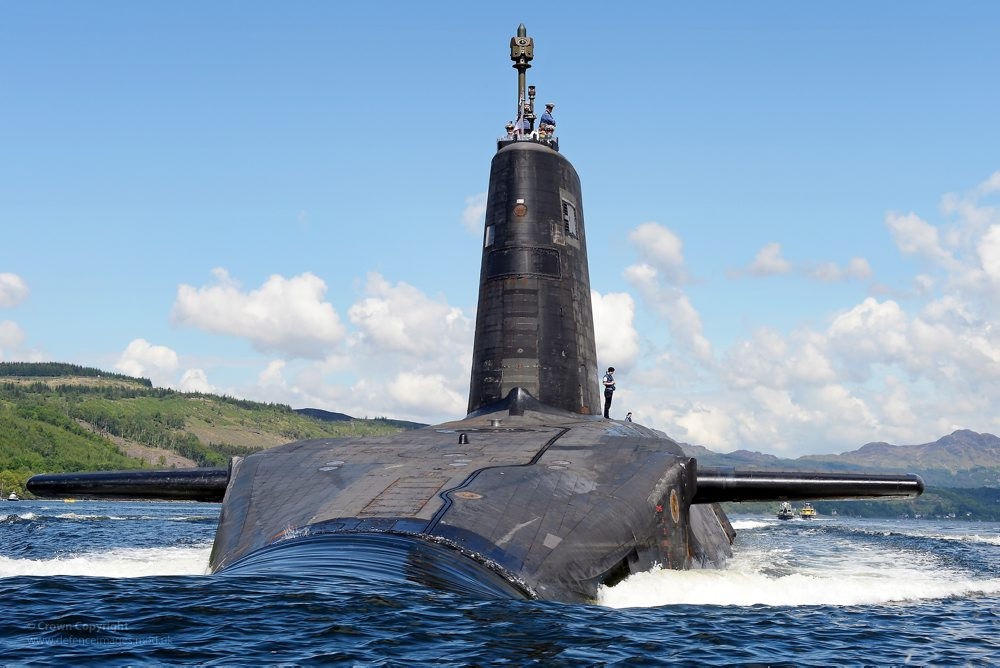I have today, submitted this article, on reasons not to renew Trident to Labour’s “Your Britain” site, I am now looking to see how to submit it to the Labour Party’s trident review. My submission focuses on the defence arguments, its ineffectiveness as a defence weapon, its questionable independence, its cost and its opportunity cost. If you agree, please visit the Your Britain site and vote for it.

The Law has changed. Acceptable behaviour when in a state of war is much more restricted than in the period following the 2nd world war and thus the moral arguments for not having/using strategic nuclear weapons are greater than in the ‘80s.
The debate is about Trident Renewal and so-called strategic nuclear weapons and not total nuclear disarmament[1].
Trident should not be renewed,
- It is not an effective defensive weapon, its proponents state it deters, or did so in the 70’ through to the ‘90s. The argument is hard to prove but it didn’t deter Argentina in invading the Falklands, China during the negotiations to return Kowloon and the New Territories, nor has it deterred Russia in its occupation of the Crimea nor has it brought peace to the India/Pakistan borders. The fact that Trident is not a defensive weapon is obvious, it’s a deterrent maybe.
- One has to question its independence. There are questions about whether we can launch our nuclear missiles without US permission and even more crucial questions as to whether we’d know where they’d land should we do so. One also has to ask if we should renew Trident whether we would have a security[2] of supply?
- The cost of Trident represents a poor investment in defence assets, due to a poor threat analysis, Trident can’t defend the British state nor its citizens against cyber-attack[3] nor asymmetric warfare nor domestic terrorism and it’s questionable if it is an effective weapon to defend the United Kingdom against any state-on-state military threat.
- In order to defend the UK, we need a broad range of military capabilities, army, navy, air-force and cyber. We have no fighter bomber, or won’t soon. The 2010 Defence review identified the lack of sufficient heavy cargo planes as another serious deficiency. We have no maritime fixed wing planes (but we do have two aircraft carriers, which we may not be able to defend in a battle zone, due to the weakness of the rest of the surface fleet, the failure of the air defence destroyer’s primary weapon system, together with the absence of planes). The army is the smallest it’s been in peace time. (The record in Afghanistan shows it cannot mount a successful expeditionary force, although that might have been missing political will, but the inclusion of soldiers in an organisation called the Territorials in an overseas theatre of operations is another illustration of the weakness in complement of today’s army. ) Also a single cyber organisation is not the best way to organise a cyber defensive capability.
Trident can’t defend us, it’s not independent, it’s an uneconomic defence asset and funding it denies us defence resources we need.
In addition to better funding the conventional and cyber military, policy should be established to reuse the skills and assets of the shipyards that build the submarines, diversifying into both civilian and alternative military work.
[1] Although the removal of the nuclear depth charges from the surface warships sent to the Falklands is an illustration of the dangers just possessing and mistakenly deploying such weapons.
[2] Think Suez.
[3] While we’re on the subject, GCHQ should be broken up, with defence given to a new adequately funded organisation, possibly part of the ICO, while the spies can stay at Cheltenham. Doing both roles is a conflict of interest and its part of the GCHQ/NSA history that they tend towards their capability rather than the defensive capability of network and general population, or civilians as the treaties governing the conduct of war call them.
Updated on 28th May to include the comments on the Sea Viper surface to air missile.
This article was first posted at http://www.yourbritain.org.uk/agenda-2020/commissions/international/britaina-s-defence-and-security-priorities/on-trident-renewal or http://bit.ly/1TZP6TD and reposted at blog.davelevy.info, it’s now here. The ‘Party shit canned the site at some point and these URL’s died.
On re-reading this, it’s clear that defence policy needs an alliances and UN dimension. The key alliance needs to be in the context of the EU.
Pingback:Disarmament – davelevy.info
Pingback:Ships, Steel & Gas – davelevy.info
On independence of supply and action, we should consider Trump’s questioning of NATO’s collective defence agreement, if we want to fire them, will the US agree. It seemed more far fetched when I originally wrote this.
Pingback:UK Defence Review 2020 |
Pingback:Defending the UK |
Pingback:National Service, really? – davelevy.info